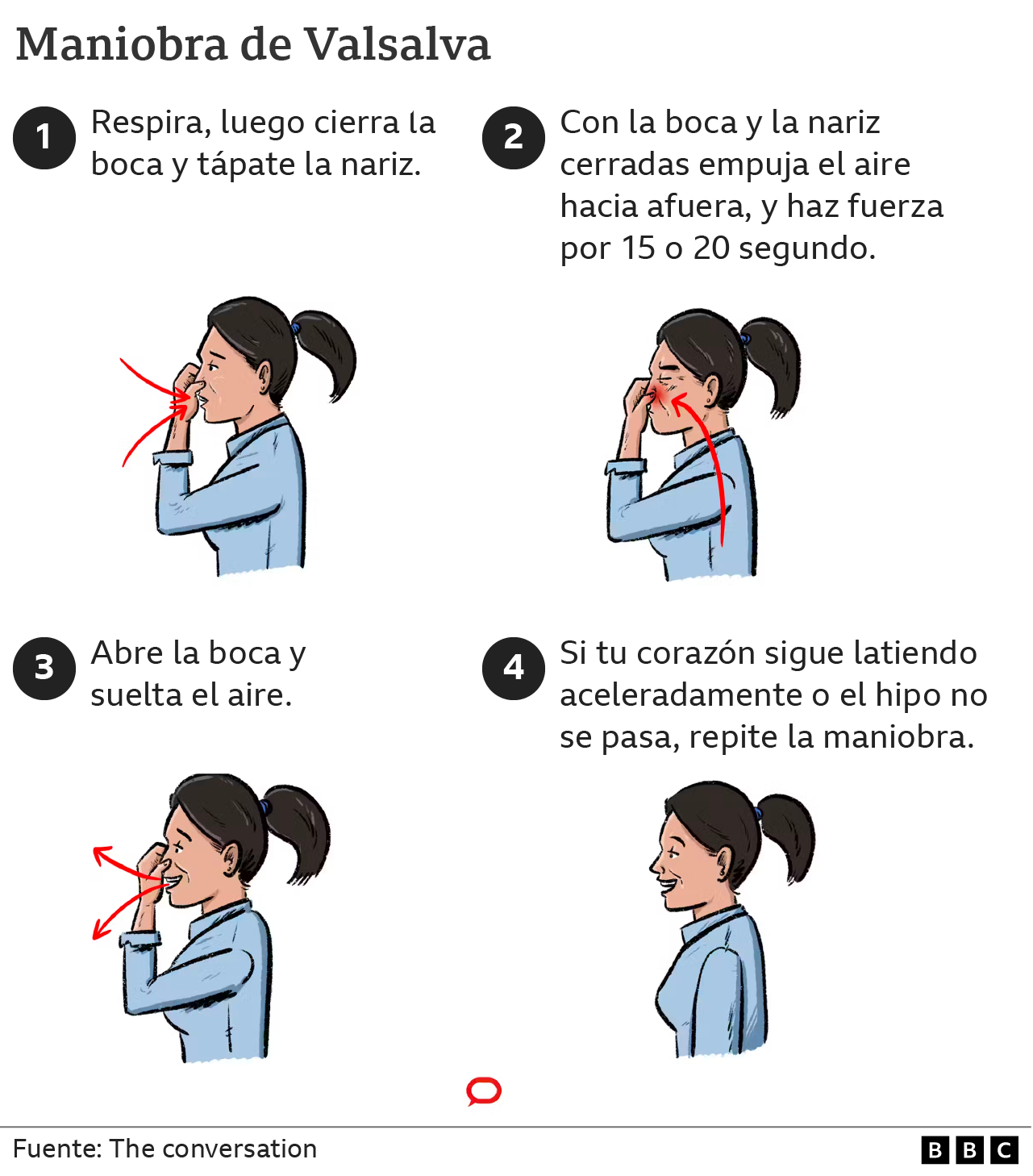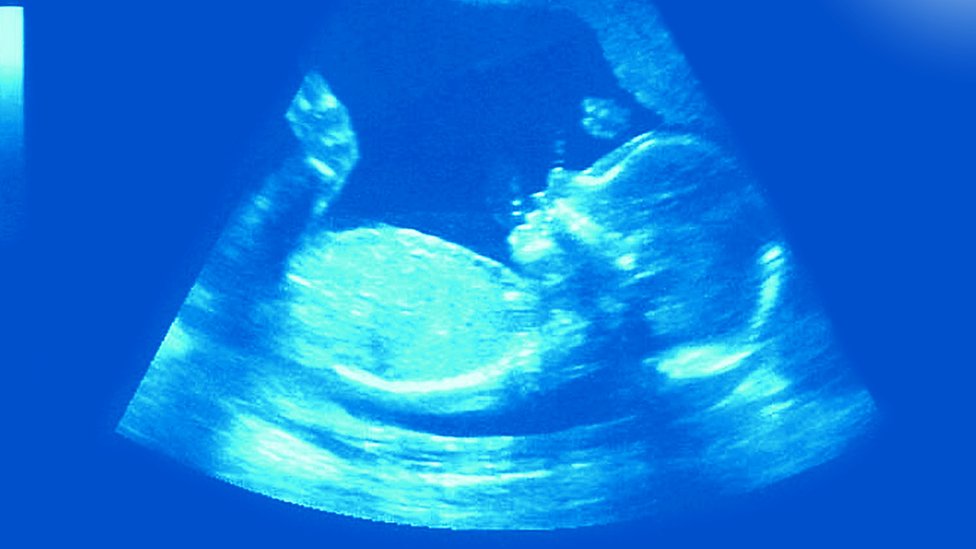April 7, 2023, 9:06 AM
April 7, 2023, 9:06 AM

We all, from time to time, have hiccups. And sometimes it seems like it will never happen.
The hiccup consists of involuntary contractions of the diaphragm -the muscle that separates the thorax from the abdomen, which plays a crucial role in breathing- followed by a sudden closure of the vocal cords.
The medical term for hiccups is singulto, a derivation of the Latin word singult, what does it mean “catch your breath while crying.”
For most of us, hiccups are annoying things that don’t last long. But in some people it can be persistent and last for more than two days.
The good news is that there are simple ways to relieve the common hiccups and treatments for when they persist.
What causes hiccups?
Hiccups are caused by a reflex arc: a neuromotor pathway that translates a sensation into a physical response. Sensations in this arc come from the brain, ear, nose and throat, diaphragm, and organs in the chest and abdomen.
Sensation signals travel to a part of the brain that, along with the upper part of the spinal cord, is known as the “hiccup center”.

From the hiccup center, signals return to the diaphragm and the muscles between your ribs (intercostal muscles), causing them to contract.
Contraction of these muscles draws air into the lungs, and this sudden inhalation causes the opening between the vocal cords, or glottis, to close tight. This quick closing produces the typical hiccup sound.
Triggers
Anything that affects the arc can cause hiccups. The most common trigger is stomach stretch that occurs when we eat a large dish or consume soft drinks.
This means that the sensation signals we have in the stomach can trigger the reflex arc.

He hot chili, alcohol, smoking and overexcitement they can also trigger the reflex arc and cause hiccups.
Hiccups have also been observed in healthy fetuses during follow-up prenatal ultrasounds. In fact, some researchers believe that hiccups are a mechanism that helps the lungs prepare to breathe soon after birth.
How long does it last? And what can we do about it?
A hiccup attack that lasts less than 48 hours is usually not worrisome. These types of attacks tend to end on their own.
When it doesn’t resolve on its own, there are ways to suppress the reflex arc. It is believed that the waltz maneuverhegoes (explained in the graph below), drink ice-cold drinks, and lightly press the balloonyes ocularis they can increase the activity of the vagus nerve that goes to the brain.

Maneuvers such as breathing into a paper or plastic bag again work by increasing the concentration of carbon dioxide in the blood. This helps to suppress the muscle movements associated with hiccups.
However, this entails a small but serious risk of heart attackso it should only be done under medical supervision.
Still, there is very limited evidence that these maneuvers and interventions work.
When should we worry?
If the hiccups last more than two days, it is called persistent hiccups. If it lasts for more than two months, it is known as intractable hiccups. Persistent and intractable hiccups, collectively known as chronic hiccups, can be distressing and can mean there is a underlying cause. That is why it is important to consult the doctor.
People with chronic hiccups undergo a complete study. The medical history often provides valuable clues about triggers. Certain medications, such as antiepileptic drugs, alcohol, tobacco, and recreational drugs, are associated with hiccups.
Because organs in the chest and abdomen are involved in the reflex arc, investigations of these organs may be required, such as imaging of the lungs or an upper endoscopy (where a tube with a tiny camera is inserted down the throat to see the upper digestive tract).
A study carried out in France found that 80% of patients with chronic hiccups had abnormalities in the esophagus and stomachbeing the reflux disease the most common finding.

Your doctor will also check your ears, nose, and throat, as ear irritation from a foreign body or throat infection can also be triggers for hiccups.
Brain imaging may be needed, especially if there are worrisome signs, such as changes in speech and weakness of the facial and limb muscles.
How is chronic hiccups treated?
After a thorough investigation, the underlying cause should be treated, whenever possible.
People who suffer from hiccups often have problems with gastric refluxwhereby treatment may include reflux medication for a short time.

Other drugs with a strong evidence base that are used to treat hiccups include the anti-nausea medication metoclopramide and baclofen, which is used to treat muscle spasticity (excessive tightness or tone).
There is also increasing evidence that gabapentin, a drug used to treat seizures, may be effective for hiccups.
What treatments could we see in the future?
Researchers recently developed a rigid drinking tube with an inlet valve that requires active suction effort to draw water from a glass into the mouth. This tube is known by its acronym, FISST.
FISTT is believed to help stop the hiccup reflex arc by stimulating the sensory nerves to cause contraction of the diaphragm and glottis.
In one study, of the 249 participants who tested FISST, just over 90% reported better results compared to home remedies.
However, the FISST research has not yet compared its results to a control group that did not receive the treatment, so it is not clear how much more effective it is than a placebo version.
*vincent ho is an associate professor and clinical gastroenterologist at Western Sydney University.















